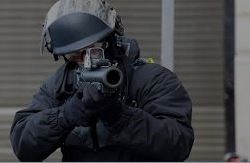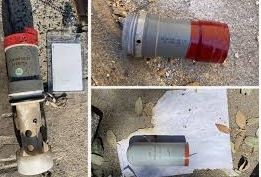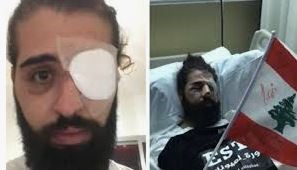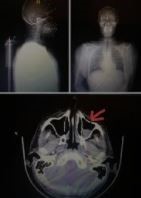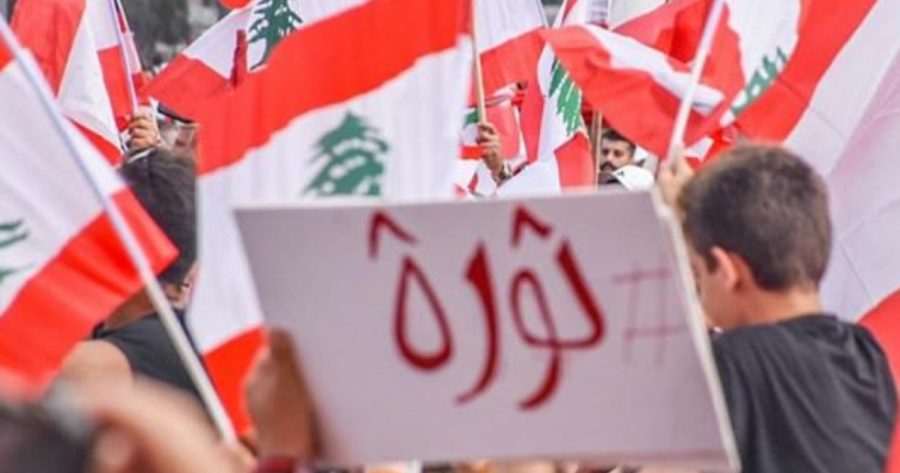
Before we embark on the task analyzing the October 17th revolution in a thorough and composed analysis—in which we will review its sweet and bitter moments—we must first address the untimely question circling around today across the news media and looming in the conversations of the people on the national level. That question is: Has the revolution failed?
The October 17th, 2019 revolution was not born out of vacuum, but rather from the accumulation of anomalies arising from the minds of the Lebanese people, regional struggles over the land, interests from foreign powers, and many more…
The uprising did not start off with traditional methods like violent revolts despite some incidents and manifestations. Additionally, it did not recognize any direct leadership or even spokespersons. It rejected the entire rotten status quo and divested from confessional and sectarian expectations. It did not favor “Saad nor Saeed” had they even the slightest association with the powers that be. It raised the slogan “Everyone means everyone” and made it its mantra. The mantra that soon set the stage for many diverse slogans by dynamic groups and movements that shared the same common goal; which is getting rid of the savage pack that have resided over the institutions of the country for many decades. Among the slogans repeated were calls to dismantle the sectarian system, the rule of the oligarchies, and the banks while others called for various cities and towns to rise up. The revolution did not practice politics in the traditional Lebanese sense which was the version of politics comprised of lies, quota allocations, organized plunder, and numerous “You scratch my back I scratch yours” types of deals. More importantly, the revolution did not abuse people’s sectarian sentiments to increase its political influence.
In a year, the revolution achieved a lot despite everything that was put up against it. In spite of the torment, the demagoguery of the Shiite Duo’s mercenary groups, the arrests, and the brutality of the police response, that punctured flesh and gouged out eyes… The revolution exposed everyone! From their leaders who taught them all their tricks, to the smallest of men bought and paid for by foreign powers. The revolution broke the barriers of fear, and no one was able to escape the wrath of its condemnation and anger. The revolution was not intimidated by the cane-bearing assailants shouting, “All but Nasrallah!” and occasionally yelling “Shiite! Shiite! Shiite!”. Brave members of the revolutionary media were not deterred by the fierce attacks of the authorities and powers that be. When faced with corruption and injustice, they stood strong and called it out for what it was.
The revolution was not spared by any party who accused most if not all the protestors of working for foreign embassies. Their monuments and their tents were burnt down by the supporters of Amal, Hezbollah, and more recently the Future Movement. The revolution which announced since its early beginning that the point of convergence between all of its supporters are not interests or alliances, no matter how often these interests align, but the prioritization of fighting corruption over all other matters.
It was often said that the revolution avoided confrontation with Hezbollah. However, if we looked carefully and intently, we could see that it was able to steadily and firmly expose the party that is armed to the brim. It avoided a head on confrontation in a losing battle which would allow them to display their strengths and use their full might against it or claim that the revolution whimpered and cried out in fear of a confrontation. The revolution defeated, one by one, the tools of Hezbollah such as the Hariri and the Diab government. It kept the media’s attention and criticism directed towards Hezbollah the entire time. It truly created a new public opinion within the Lebanese public sphere which no one ever dreamt of even having; especially when these opinions are against those whose money, munitions, training, and support comes from the Republic of Wilayat al-Faqih.
In fact, the revolution did not emerge in the face of the government or to disrupt peace, but instead it rose against the entirety of the political class that plundered the wealth of the Lebanese people and impoverished them. They are the true power running the government in Lebanon, and Hezbollah are the ultimate side among them.
To all those who claim that the revolution is over, we say that rather it is taking a “warrior’s rest”. Revolutions throughout history such as the French and the Algerian all took a long time to succeed. Politics is the art of the possible, so it is more prudent to bide time and wait for the chance to make the next best move. After the experiences of the revolutionaries align, and their belief in the cause is strengthened; know then that victory over the vicious packs is merely a matter of time.
The Commencement of the Revolution
The October 17, 2019 revolution began in the form of street protests triggered by a proposition of a new $6 monthly tax on the use of WhatsApp by Minister of Communications Mohamed Choucair within Saad Hariri’s government. The protests that started on a Thursday night quickly developed into a widespread popular movement against current governance, economic stagnation, unemployment, corruption, lack of basic services, misuse of public funds, and the failure of the officials to address any of these issues successfully. All the while, these officials maintain current legislation that protects them from questioning and all forms of accountability.
In an extraordinarily short time, the protests transformed from a standoff between peaceful protestors against the regime into one of the former against their fellow citizens along sectarian lines. These were the very same lines drawn by warlords during the civil war who are the very same pillars of the current Lebanese political regime. Prime minister Saad al-Hariri was pushed into resignation on October 29th, 2019. However, the other two pillars of the government—one of whom has been in government for the past 28 years which makes him the longest reigning speaker of parliament in the world— clamped on to their positions. On Dec 19th, 2019, as the protests raged on, former Minister of Education Hassan Diab was assigned to form a new cabinet. Despite this appointment receiving significant condemnation from the protestors, the cabinet was formed on the 21st of January 2020—33 days after Diab’s appointment. Diab’s cabinet which comprised of 20 ministers—down from 30 ministers held by its predecessor—was granted approval through a dubious plot by Berri—which will be discussed later. Ultimately, this cabinet could not survive 8 months at the helm. Prime Minister Diab submitted the cabinet’s resignation on August 10th, 2020; one week following the catastrophic August 4th Beirut Port explosions that deepened the wedge between the government and the people much further.
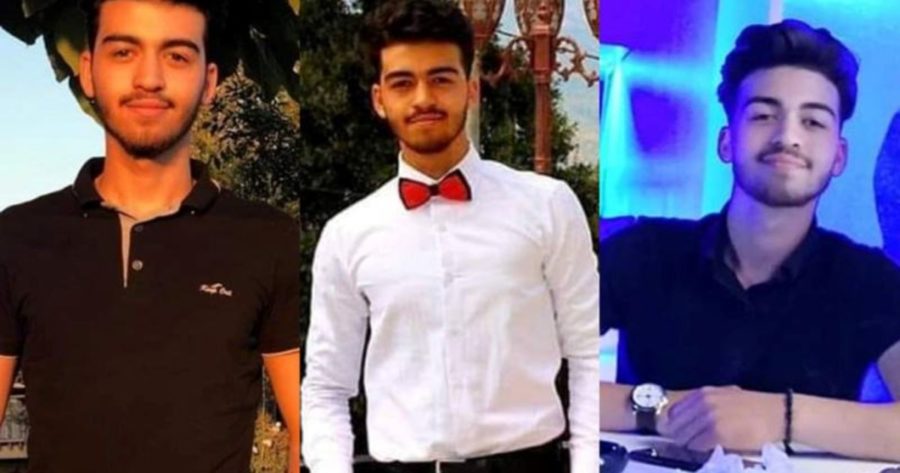
The Early Indicators
Undoubtedly, the outbreak of the protests was not a spur of the moment nor a result of the WhatsApp tax alone. Rather, it was a result of the accumulation of previous crises and tensions among political factions and many supporters triggering the breakout of various unfortunate events. For example, one incident that occurred on May 27th 2019 in Saadiyat—an area populated by both Hezbollah and Future Movement supporters—was a shootout that took place near a Hezbollah mosque, and it resulted in the death of Mohamad al-Mawla whose car was shot 16 times killing him instantly. Similarly, on June 30, 2019 in the town of Basateen, Chouf, another similar instance occurred between Walid Jomblatt supporters and the security team of Minister Saleh al-Gharib who is politically affiliated with Talal Erslan’s Lebanese Democratic Party and allied with the Free Patriotic Movement. The incident began as Jomblatt supporter’s organizing a protest against the Gharib’s visit to the area. The protests quickly erupted into a shootout that killed 3 including 2 of Gharib’s companions; one was Akram Salman, an official in the Lebanese Democratic Party, and the other was Nadim Abou Faraj, a personal companion of Minister Gharib. The third victim was 17-year-old Samo Ghosn, a teenager residing in the area who got caught in the crossfire and died 25 days later after finally submitting to his fatal head injury.
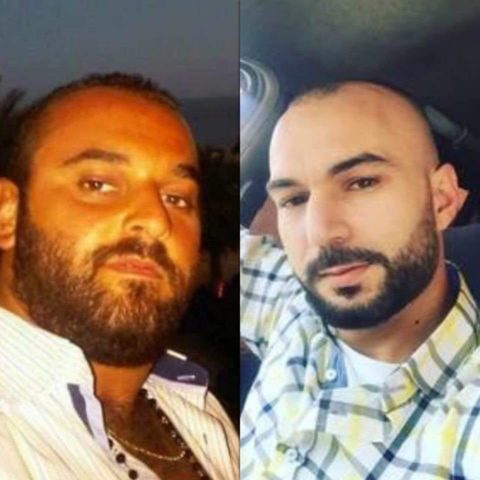
Upon the start of the revolution, and specifically on its second day of October 18th, a body guard of then Minister of Education Akram Shehayeb—a member of the Progressive Socialist Party—fired shots in the air and towards protestors while running over some of them in the ministers caravan as it was exiting the parliament. The response was a result of groups of protestors blocking the exit roads in front of the caravan. While no one was killed in the incident, Shehayeb later handed the shooter over to the authorities at the request of his party leader Walid Jomblatt.
Two Revolutionary Movements that Preceded October 17
Before the commencement of the revolution, tensions were mounting in the form of peaceful protests. Two demonstrations stood out in the week prior to the eruption of the nationwide protests. The first was on October 11 when activists from the independent political party “Seven” stormed the parliament in which a member of the party’s executive committee Baria al-Ahmar read a statement that revealed 10 separate times the institution had breached the constitution. Examples of these breaches included approving budgets without including accounts, ignoring constitutional deadlines for submitting paperwork, shutting down parliaments for long months due to political gridlock, concealing the submission of bills for national development, extending parliamentary mandates after their expiration, and much more… The statement declared “The launch of a national civil resistance movement, neither Christian nor Muslim, in the face of a sectarian regime struggling under the weight of crises it has brought about itself.” The statement concluded: “We no longer have a solution except changing the ruling class through early parliamentary elections. Through these elections will arise a new parliament, president, and a government of specialists.” Following this demonstration dozens of participating activists were arrested and subsequently released.
The second demonstration that stood out happened on the same day when some members of the Communist Party youth group stormed the “Labor Union” building in Beirut. Once inside, they issued a statement calling on “All those affected by the economic policies to protest in front of the Association of Banks where the people’s looted funds are accumulated.” They claimed that it was: “The alliance of banks, the central bank, and the political class are responsible for confiscating the deposits and savings of the Lebanese people.” The group also added that the fight with the current “rotten” political class has become existential, and it involves fighting corruption, clientelism, and the sectarianism the politicians sustain and perpetuate in order to maintain and cement their influence.”
The revolution was directed towards the incompetence of the ruling class on all levels! In addition to their siphoning of public funds, failure to provide the most basic services for citizens, and the erosion of the purchasing power of the Lebanese people through failed economic policies, this administration also failed massively in containing forest fires (estimated by over a hundred fires). The fires devoured large areas of green forest land which was a source of pride to the Lebanese people; they also displaced hundreds of families and caused massive damage to the wildlife. Instead of rapid response, the government rushed to request help from neighboring countries such as Cyprus, Jordan, Turkey, and Greece. In addition to all these shortcomings, the mother of all calamities is and has always been the deficit in electricity production. Since the outbreak of the 1975 civil war, the Lebanese Electricity Company has never once recorded a steady 24 production stream of electricity. Since then, the rationing of electricity has been a common occurrence as electricity cuts occur on a well-defined schedule. Sometimes, the electrical power received by households is so low, that they look forward to power cuts in order to use the neighborhood alternative generators which are more reliable and fill in the gaps between outages. This caused a rise in what is now known as the “Generator Mafias” who are present all over the country. As the situation ensues, the sanitation infrastructure of the country also continues to crumble along with a “garbage crisis” that resurfaces every odd number of years.
Confrontations
One day after the beginning of the revolution, companions of former MP Mosbah al-Ahdab opened fire and wounded 7 people in al-Nour Square in Tripoli during a demonstration. Protestors aimed to prevent al-Ahdab from joining their protests as they considered him a symbol of the ruling class which is wholly rejected. Water bottles were thrown at him prompting his security detail to fire warning shots at the crowds in order to disperse them and escape.
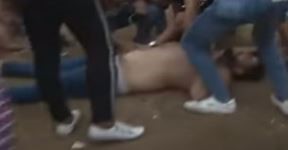
The Five Martyrs
As is the case with every revolution around the world, the October 17th revolution saw 5 people give their lives at the altar of dignity and freedom.
The First Martyr
It wasn’t long before the October 17th revolution turned bloody. In fact, it took only 2 days. The victim was himself a part of the protests, and his name was Hussein Attar. He fell while participating in protests along the Airport Road after being shot twice by Khalil Awwad, a member of the AMAL Movement, one of whose bullets pierced Attar’s heart. Attar’s crime was confronting Awwad who was charging large sums of money from those who wish to pass through the blockade and go to the airport. Attar asked him not to demean the seriousness of the protest with such abuse. The shooter then fled to Syria where he hid for about a year before being arrested coming into Lebanon at the Syrian border on October 7th, 2020.

The Second Martyr
On October 19, 2019, the young protestor Omar Zakaria mounted the top of building in a construction site near Riad Solh. Grasped in his hand was the banner he wanted to plant higher than all others, the Lebanese flag. He hoped to raise up his country as he did its flag, to the very top. Omar stumbled and fell upon expose metal beams that pierced his chest. He was immediately taken to the hospital for treatment, but nine days later he surrendered to his wounds dying on October 28, 2019.
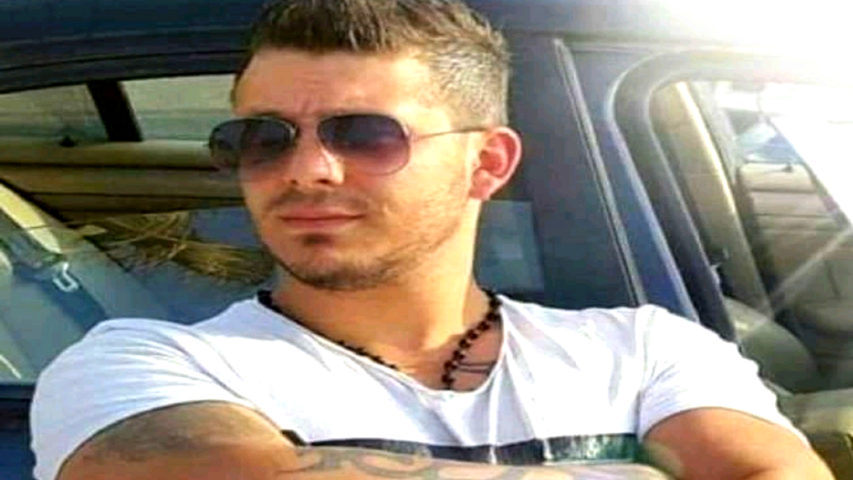
The Third Martyr
On November 13th, 2019, Alaa Abou Fakhr was shot in the head following a clash with a driver of a military vehicle belonging to the Lebanese army. An argument ensued after Abou Fakhr and a group of protestors had blocked the main road leading to Khaldeh, as the vehicle was attempting to pass through the blockade. The shooter was a member of the Army Intelligence, first adjutant Charbel H. who was an attendant accompanying Colonel Nidal Daou who is close to the Progressive Socialist Party. The Army Command office later described the incident as a shooting to disperse demonstrators that caused injuries among them. The shooter was also arrested, and an investigation was underway.
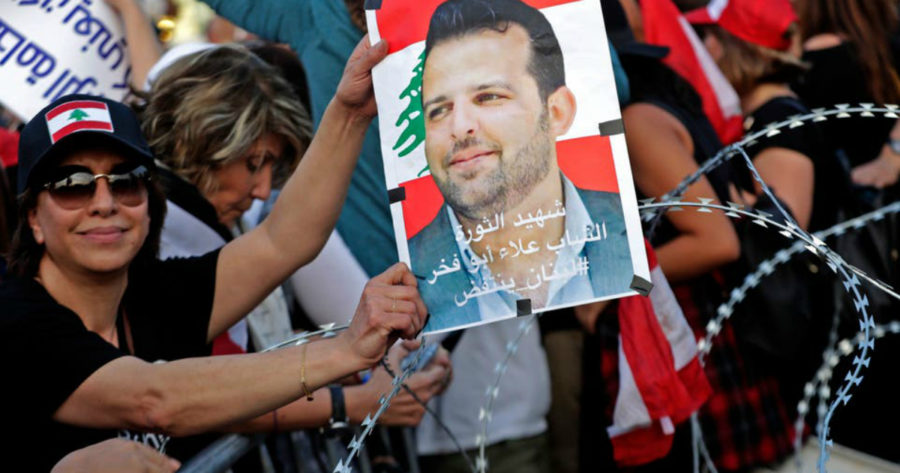
The Fourth Martyr
Despite efforts by many doctors and a lot of pain endured, the fourth martyr Ahmad Tawfiq passed away on February 17th 2020. After 2 months and 20 days of struggle in intensive care, his body gave in to its injuries caused by an Army bullet that ripped through his body and destroyed his vital organs. The incident occurred during violent clashes with protestors attempting to burn down an office for the Free Patriotic Movement in Gemmayzat Street in Tripoli.
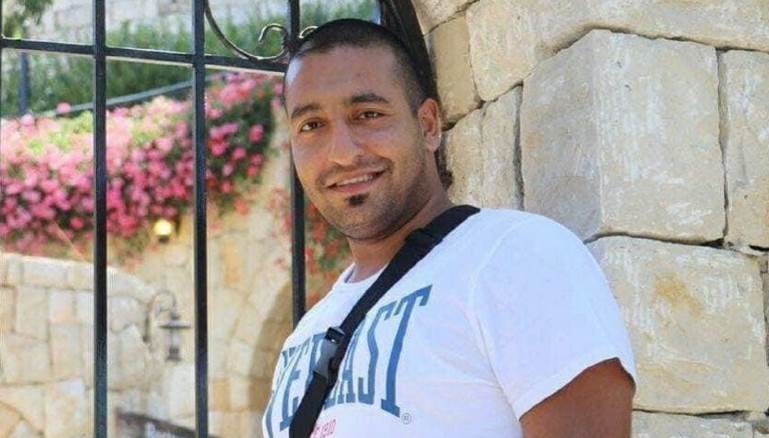
The Fifth Martyr
On the night of April 28, 2020 in a confrontation with the Army, a young man by the name Fawaz Salman fell during a protest held in the city of Tripoli. Salman was protesting against the squalid living conditions experienced by the people of the city and Lebanon in general.
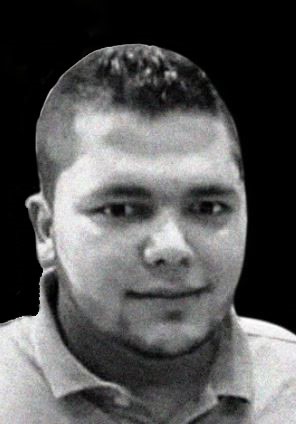
The revolution offered 5 martyrs at the altar of freedom
Economic Collapse
Had matters played out under stable economic conditions, the people could have been more patient with their leaders. Instead, the crises piled on as the Lira began to bleed against the dollar, and the economy slid more and more into the abyss. GDP per capita was reduced to decade lows as state debt reached all time highs. International credit rating agencies began reconsidering the Lebanese government’s credit rating—particularly its government bonds. This was especially dangerous for a country that depends heavily on imports funded almost exclusively by the dollar deposits of its diaspora.
All of these factors combined collectively led to massive increase in the budget deficit which in turn quickly hollowed out the foreign currency reserves of the central bank. Additionally, companies and individuals were no longer able to obtain dollars at the official exchange price which gave way to the rise of the black market. On October 2019, the Central Bank of Lebanon issued a circular which aimed to allow the provision of dollars to importers of basic commodities (fuel, wheat, and pharmaceuticals) at the official exchange rate price of 1507 L.L/$. This of course was only made possible after the companies provided the necessary documents to ensure that the credit issued will be used for purchasing these products alone.
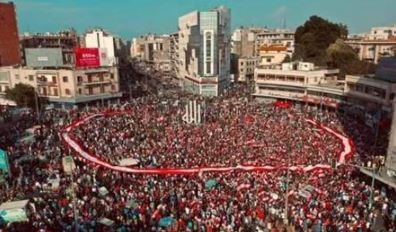
Furthermore, reducing the newly gowing deficit became a number one condition to facilitate the arrival of the international grants and loans that Lebanon was expected to receive in 2018 from the World Bank ($10.2 bn) and from the European Bank and KSA ($860 m). On October 17th, 2019, the cabinet held a meeting with an agenda of 36 items that propose different strategies to increase revenues for the year 2020. This agenda included increasing the VAT from 11% to 15%, which would be applied gradually to reach 15% at the end of 2022.
The Movement Begins

Efforts by the government and the central bank did not succeed in tempering the frustrations of the demonstrators, as day 2 of the protests witnessed the migration of these demonstrations across Nabatiyeh, Tyr, Baalback, Bint Jbeil, Kfar Remmen—the strongholds of the Shiite Duo. As demonstrators in Nabatiyeh vandalized Hezbollah and Amal offices, their counterparts in Tripoli—the capital of the north—attacked offices belonging to the Free Patriotic Movement in an expression of disappointment and frustration caused by rampant governmental corruption. In Beirut, Demonstrators attempted to enter the Grand Serai and were met with security forces dispersing them with tear gas. Soon after, demonstrators across Lebanon blocked highways all across the country with burning tires and garbage containers. These spontaneous gatherings would soon be the beginning of the movements known as the “Revolutionary Squares”.
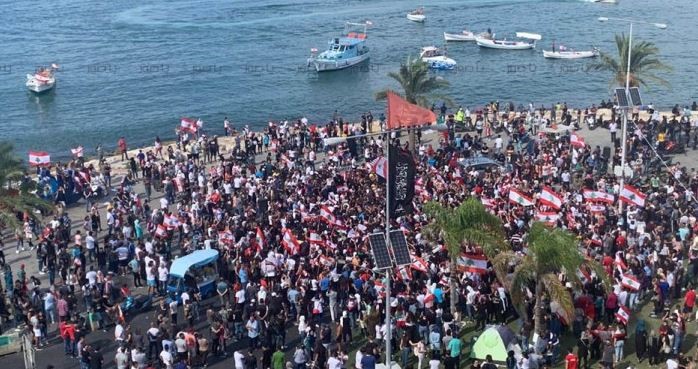
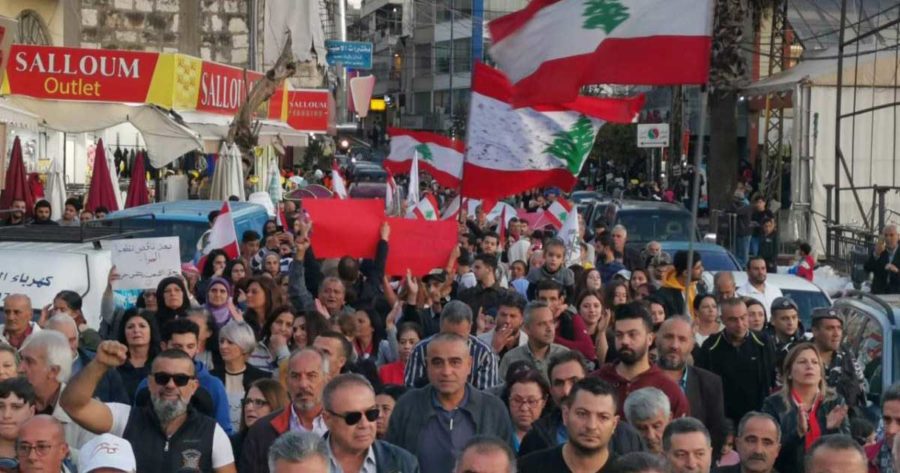
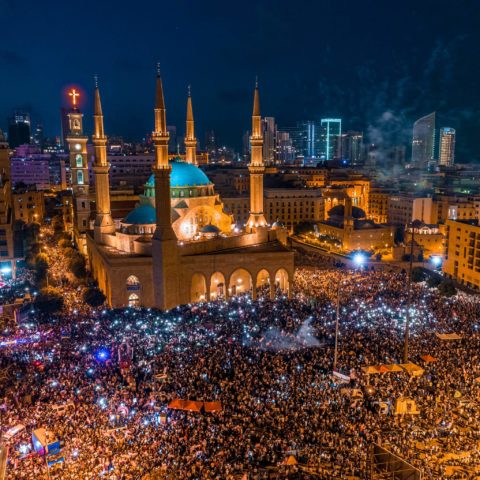
A Rising Revolution That Broke Down Old Alliances
On the day of a scheduled cabinet session, a primary old ally of Prime Minister Saad Hariri announced that his ministers would not attend session calling on Hariri to resign. Geagea revealed age-old and sharp disagreements between his party and Saad Hariri, as he urged Hariri’s resignation due to “massive failure in preventing economic deterioration”. Meanwhile, Druze Leader Walid Jomblatt urged the people in Aley, Bhamdoun, and Baakline to protest peacefully against the Aoun administration that had succeeded in blocking all reform initiatives. With the help of his nephew Gebran Bassil, Aoun distanced himself from the entire corrupt political class while distributing blame on everyone else for the failures on the government. Jomblatt concluded by saying: “We will limit the protests to our own areas in order to avoid unnecessary provocations.”
In response, Hariri cancelled the scheduled cabinet session, and instead addressed the public through a televised speech directed towards certain “governmental institutions”, that he did not specify, “72 hours to provide convincing arguments instead of constant disruptions”. Hariri threatened that his approach will change in case he did not receive cooperation. Meanwhile, protests within the squares of Beirut grew larger and began to demand the departure of the three heads of state. The momentum of these protests grew so high that on one occasion the number of demonstrators, who raised nothing but the Lebanese Flag, across the squares in Lebanon was estimated at 1 million.
Nasrallah’s Triple Rejection
On the third day of the demonstrations, Hezbollah’s Secretary General Hassan Nasrallah addressed the Lebanese people and rejected the demands of their revolution. 3 important issues were highlighted as he directly rejected them saying: “The Hariri government will not resign, because if it does, there’s no telling how long it would take for the cabinet to be replaced. We want the same government to proceed with a new methodology and resolve. We reject a technocratic government, and we reject early elections.” Nasrallah did not propose a plan his party would adopt. Instead he urged “everyone” to make sacrifices. On why his party and followers are not participating in the popular uprising, he explained that if they did, they would never stop until they achieved what they set out to do. He concluded by explaining that they would participate in case new taxes were imposed on the poor, and they would make sure it would not occur.
In fact, and on that very day, Nasrallah’s followers as well as Amal’s descended upon the streets of Tyr harassing and opening fire on the peaceful protestors. Motorcycle gangs carrying Hezbollah and Amal flags infiltrated the Beirut protests attacking the protestors and destroyed their tents. As the Lebanese army thwarted these attempts, both Amal and Hezbollah denied their involvement or responsibility in these incidents.
The Resignation of the Lebanese Forces
On October 20th, 2019, Leaderof the Lebanese Forces Samir Geagea announced in a press conference the resignation of his 4 ministers from the government due to its gross incompetence and obstruction of necessary reform. It was also notable that Geagea had not informed Hariri of the decision prior to the public announcement.
Bank Shutdowns
On Friday October 18th, 2019, amid growing questions from depositors, the banks of Lebanon closed their doors without prior notice. A response by the association of banks to alleviate the concerns of depositors was delayed until Monday the 21st. Meanwhile, depositors were left in the dark fearing over their businesses and the lack of available liquidity. The response arrived yet banks remained shut. In his statement, the Director of Media and Public Relations at the Association of Banks of Lebanon confirmed that the banks will remain closed to maintain safety and security of the branches and their employees across the country, as some protestors are escalating and have caused damage to multiple branches.
It did not occur to any depositor that these closures would last for 20 days! In fact, even as they opened, they did not bring any of the relief the people expected. Instead, what the people got and what the banks brought was nothing. To the surprise of most Lebanese, Liquidity was gone and gone for good. Lebanon’s S&P credit rating was reduced due to fears of insolvency, lack of reform, and the continued closure of the banks playing a significant role in that.
Disavowing Demonstrators
On October 25th, Hassan Nasrallah gave a speech suggesting that protests ought not to be utilized by foreign and domestic agents attempting incite a civil war within the country. In response, 170,000 protestors responded by creating a human chain of interlocking hands extending from Tripoli to Tyre (171 km) to represent the unity of the Lebanese people from all different regions and sects.
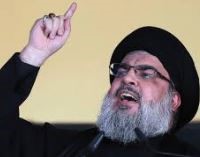
On November 12th, Nabih Berri asked Hariri to form a new government, but Hariri refused. That evening, President Michel Aoun appeared on a live television interview in which he completely rejected a fully technocratic cabinet. Additionally, he warned against emptying out the banks due to the harm that would cause to the economy. Aoun called for an immediate end to the protests before disaster ensues. He accused demonstrators of backstabbing the people and violating laws by closing roads; he also famously declared: “If you don’t like how things are, leave”. Unsurprisingly, this pushed hundreds of thousands of angry people to the streets of Beirut, Qob Elias, Dahr Al-Baydar, Jiyye, Nahr al-Kalb, Nahme, Biddawi, abde, mohamra, Berqayel, the sports city, Verdun, Jal el-Dib, Hasbaya, Balma Highway, Aley, Cola, Dawra, Saifi, Cornich el-Mazraa, Sassine, and the Ring Bridge.
The Revolution Elects the Head of the Bar Association
On 17 November 2019, Melhem Khalaf was elected by a non-partisan revolution-supporting majority for the first time in the history of the Bar.
The Violent Offensive by the Shiite Duo Against the Revolution
On one of the most intense evenings since the start of the protests, Hezbollah and Amal supporters clashed violently with protesters located on the Ring (the bridge connecting Western Beirut with Eastern Beirut). In addition, they burned down demonstrators’ tents and monuments put up on Martyr Square. They also destroyed cars and damaged private and public property. The incident prompted UN Special Coordinator for Lebanon Jan Kubis to send a tweet warning of the dangers of escalating confrontation. The next day, supporters of the “Duo” toured Beirut, Tyr, and other cities chanting provocative sectarian slogans causing clashes and rising tension across Lebanon. Things escalated when clashes occurred between Chiyah and Ain el-Rimmene where 16 people were arrested for their involvement.
Lebanon Defaults
Saturday, March 5, 2020 witnessed a historic Lebanese milestone, as then Prime Minister Hassan Diab ordered his treasury to default on the $1.2 bn Eurobond interest payment due on March 8 marking the first time the Lebanese Republic fails to make due on its debts. The Lebanese national debt reached 92 billion dollars, and a severe foreign currency shortage was endangering reserves. In the midst of these deteriorating living conditions and a massive reduction in the average income, the Lebanese banks seized the deposits of the Lebanese people.
Suicides
Naji al-Fleeti was a 40-year-old father to a 6-year-old and a 1 year old girl living in Arsal. Two months after he became unemployed and 500,000 L.L. in debt, he no longer had 1000L.L to pay for his daughter’s school breakfast. Naji took his own life, and that shook the nation. Many suicide attempts by people in similar situations soon took over Lebanon, and most of them were successful. Naji’s suicide which was due to him losing his ability to provide for his family sparked a great deal of anger in the Lebanese people which was further translated on the streets and in the revolution.
Below we briefly mention many other suicide attempts, some successful and others that are not:
- Dany Abou Haydar, father of three and resident of Al-Nabaa neighborhood near Beirut, committed suicide by firing a pistol to his head because he was unable to repay his debts, and his children’s school tuitions having after he was fired from his job. The devastating declining economic conditions in Lebanon had left him buried in debt after his salary was cut in half 2 months prior to his death.
- George Zreik, a father from Bkefteen in the district of Koura, was another victim of deteriorating economic conditions. Following the refusal of his daughter’s school to accept his request of transfering her into a public school before fulfilling his financial dues, Zreik decided to take his own life by setting himself on fire in front of the school’s gates.
- A security officer, Antonio Tannous, was found dead in a field outside the town of Safinat al-Darb in Akkar along with his personal pistol. The incident was recorded as a suicide due to all the evidence pointing in that direction. However, the motives were unclear as to whether they were material. The results of the investigation remain confined to the judiciary of the military corps who have yet to release their findings.
A Heartbreaking Day
July 3rd 2020 was a heartbreaking day for Lebanon, as suicides took two innocent lives and plunged the people of Lebanon into a state of devastation. The events caused the Maronite Patriarch Bechara Al-Ra’ii to mention the incidents during the beginning of the Rosary prayer for Lebanon which took place at the Church of the Patriarchate.

Protesters mourning the lives lost to suicide
Lebanon had woken up to the tragedy which saw Mohamad Ali al-Haq shoot himself in front of a Dunkin Coffee shop in Hamra in the midst of a stunned group of passers-by. Mohamad, who had just finished his cup of coffee, had hung a sign around his neck that said: “I am not an infidel, but hunger is”. His final words: “Lebanon is free and independent!” were heard by everyone nearby, as he shouted them out before taking his own life. Onlookers grouped up around his dead body that had clenched in its hand a newly issued clean criminal record.

After investigations were conducted, security forces found out the Mohamad had been under substantial financial debts following his return from the Gulf were he worked in many different restaurants, and opening up one of his own in Mrayje, Beirut. The failure he endured in his new project in which he was also unable to cover the monthly rent, much less provide for himself, pushed him to end his own life. The phrase “I am not an infidel” which Mohamad left behind soon turned into the most used hashtag in Lebanon (#أنا_مش_كافر). On May 17th, demonstrators took to the streets and held the message on banners while calling on officials for justice.
Samer Habali was a father to an only daughter from Saida. He was the second victim of poverty and destitution on that fateful day. He put an end to the daily suffering and humiliation he had been experiencing in his search for a living. The burdens debt an unemployment along with his distress over his wife’s illness intensified; pushing him to hang himself on that day.
The Maronite Patriarch Al-Ra’ii said: “It gives us great pain and deep regret that two young men committed suicide today in Lebanon due to woeful living conditions. Such an event is a stain upon Lebanon. What one of them said (I am not an infidel), constitutes a great responsibility upon all the Lebanese people, officials and non-officials alike.”
The Fall of Samir al-Khatib
Following the withdrawal of al-Khatib, a name that was floated after Hariri’s resignation as candidate for the position of prime minister, due to his failure to obtain sufficient support from the Sunni parties, Saad Hariri’s name went back to being the only one in contention for the position. However, protestors shortly gathered outside of congress to express their rejection of his candidacy and demanded an independent candidate. The protestors chanter against Hariri and Bassil. In response, Hariri posted a tweet announcing that he will not be considering himself as a candidate as Prime Minister in the upcoming cabinet.
Eventually, Hassan Diab was appointed as Prime Minister. Protestors and rioters also did not accept his appointment and called for his resignation. These protests subsided relatively for one month, but they resumed violently on January 14th, 2020. On that day, highways and main roads were closed in Beirut, Tripoli, Akkar, Saida, and Zahle; violent clashes with police forces also occurred outside the Bank du Liban in Beirut.
Protester Arrests Intensify
On January 15, demonstrators gathered in front of El-Helou Police Station in Beirut, demanding the release of more than 50 demonstrators who were arrested during protests. According to the Red Cross, 45 people were wounded in the clashes which forced the Lebanese Interior Minister Mohamed Fahmy to issue a statement criticizing the violence against the protesters and simultaneously urging them to protest peacefully. Human Rights Watch called on the authorities to release the detainees who have not been charged, and hold accountable the officers responsible for the excessive use of force against protesters.
The Arrest of Nicholas Frakes
The International Business Times (IB Times) reported on January 19, 2020, citing the Committee to Protect Journalists, that journalists covering anti-government protests in Lebanon began being arrested, assaulted, or harassed by the police. The report was published 5 days after the independent American journalist Nicholas Frakes was arrested in Beirut on January 14 on charges (according to the “Washington Post”) of sending footage of antigovernmental protests to the Israeli newspaper Ha’aretz. Ha’aretz swiftly denied the allegations and responded by saying that the protest video they uploaded to their social media was published by “Reuters”.
Gebran Bassil’s International Rebuke
Fate would have it that Caretaker Minister of Foreign Affairs Gebran Bassil is invited to deliver a speech at the World Economic Forum “Davos” on January 20, 2020. Bassil had already represented Lebanon in the same forum the year before, but this time he was up for a challenging interview by CNBC’s Hadley Gamble, which he did not expect would turn into more of a trial.
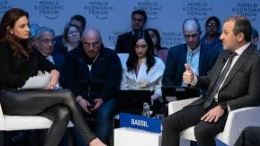
Before the interview with Bassil, Gamble appeared on a CNBC program and said that she had received: “In the past 24 hours, many tweets and Facebook messages from her Lebanese viewers expressing a lot of concern and dissatisfaction with Bassil representing Lebanon and being platformed by CNBC this year. They all objected to that!” In turn she promised: “As a journalist and a person who carries a special love for Lebanon in her heart, Bassil will be vehemently questioned about all that is happening in Lebanon during the interview. Bassil was as a result made aware of the situation and was intent on not allowing gamble to press him with hard questions as she had promised her followers. However, she immediately surprised him by asking the attendees a question by a raise of hands on whether they believe the Diab government is able to take on the challenges it is faced with in Lebanon. Only one hand was raised among the attendees, and it was not even Bassil’s. Then came another surprise question came from gamble as she asked: “ Many people have asked me on how you came to Davos being that you are no longer a Minister. Did you really come by private jet?” Bassil answered: “ I am here as a former minister, and I was invited to appear which I did at my own expense.” To which Gamble responded: “But ministers receive only $5000 a month, how can you afford a private jet?” “I did not spend a single pound from the public treasury.” “So, this is family money?” “No, it was given to me by a personal friend…” This is when Sigrid Kaag, a member of the panel, interjected by saying: “When we’re in government, we’re not supposed to have such friends!”
Gamble, who is closely familiar with what goes on around social media, commented cleverly on remarks made by Bassil’s deputy in the FPM May Khreish when Bassil said to her: “You must be following twitter and social media..” to which she interrupted by saying: “Yes, and apparently I’m a Zionist.” Khreish had published a tweet saying: “Gamble is a tool in a Zionist plot against Gebran Bassil. She wants to prevent Bassil from going to Davos. She wants to hold him responsible for everything that has happened in Lebanon!” She attached the post to a picture of Hadley with the late Zionist Prime Minister Shimon Perez.
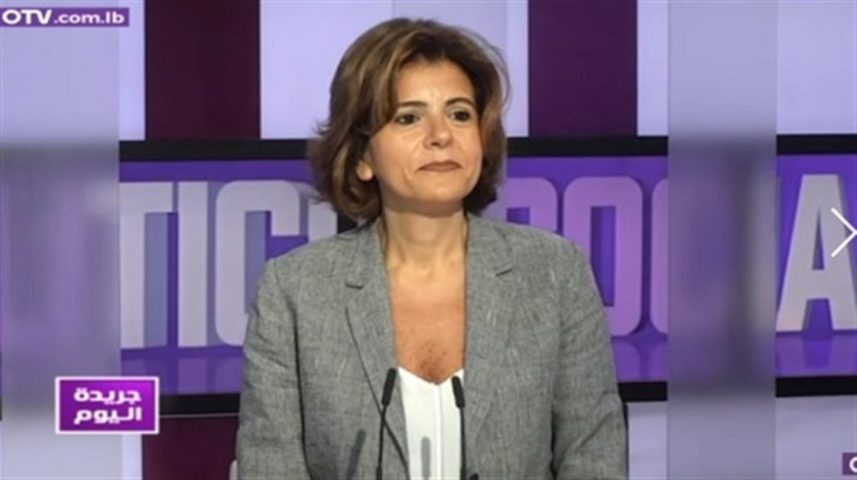
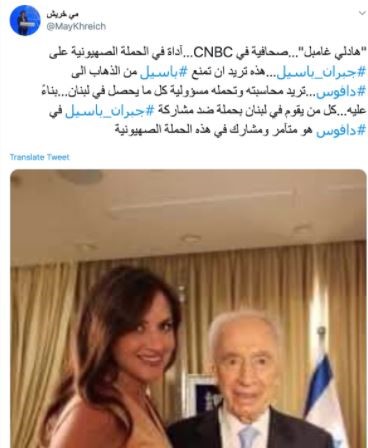
The “Avaaz” petition website published a petition signed by six thousand people saying: “Bassil should not be present in a prestigious international forum like Davos in the name of the Lebanese people. He must not be given a legitimate platform to bolster his ideas and speak on the behalf of a nation that rejects him and accuses him of fraud and corruption.” Change.org also hosted a petition signed by 11 thousand people saying: “Bassil is responsible for major tragic decisions that likely led the country into bankruptcy!”
Amnesty International Condemns Police Brutality
On January 23rd, 2020, an Amnesty International statement on the events in Lebanon said: “The illegal use of rubber bullets by Internal Security Forces resulted in hundreds of injuries among the protesters, some of which are critical.” And that: “The government must investigate the unlawful and excessive use of force that wounded an excess of 400 people across the span of two nights according to the Lebanese Red Cross. The protestors were also beaten, threated with rape, and arbitrarily arrested and that must be prevented of reoccurring. The organization conducted interviews with 13 eyewitnesses, including two doctors, and viewed dozens of pictures, video clips, and read official statements that support these findings. The statement added that: “ The rubber bullets targeted the upper parts of the body. Tear gas and water cannons were fired from close range which caused significant damage among the protesters… At least two women also confirmed that they were threatened by security officers with rape.”
The statement continued: “ The judicial authorities have an important role to play in the investigation to send a strong message that violence will not be tolerated.” The statement pointed out that the delinquency of “a few dozen protestors” who threw stones and fireworks a the security forces does not make the entire protest non-peaceful, nor does it justify the excessive brutality exercised against it.”
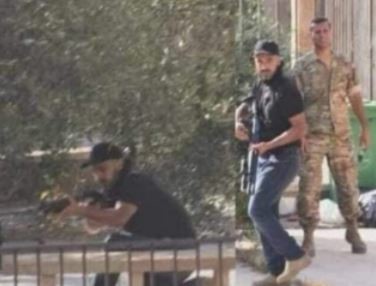
The organization reported the testimony of three protesters who claimed that the riot police fired rubber bullets at them directly as they were fleeing to Gemmayzeh Street, and the testimony of a surgeon in Hotel Dieu Hospital (whose name was not mentioned upon his request) who treated 4 cases of head injuries by rubber bullets; one of those injured even lost vision entirely.”
One video clip that circulated widely on social media shows the security forced beating up the protesters as they escort them from the police vehicles into the precinct. The head of the ISF promised to investigate the incident. However, no investigation proceedings have been made public until this day.
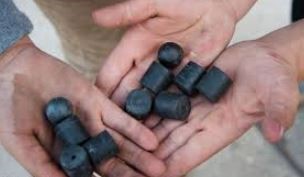
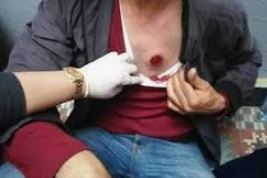

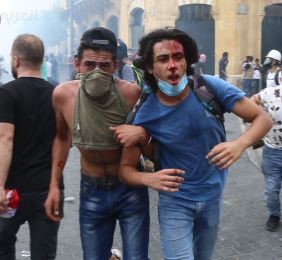
The 2020 Budget
Amid the worsening financial crisis, the Lebanese parliament approved the 2020 budget on January 27, with only 70 MP’s attending out of 128, and 49 of them voting in favor of it. According to Ibrahim Kanaan, head of the Parliamentary Budget Committee, the purpose of the new budget was to reduce the GDP deficit to about 7%.
The First Casualty on the Side of the Authority
On February 11, 2020, protesters blocked all roads leading to Parliament to disrupt the parliamentary session scheduled to grant confidence to Hassan Diab’s government. They attempted to prevent a quorum from being achieved by blocking MP’s from reaching the parliamentary building. 84 MP’s were able to attend the session. 63 of them voted to give confidence while 20 voted not to. Among these 20 were the Lebanese Forces, Future Movement, and Progressive Socialist Party representatives. One other MP abstained from the vote.
Some MP’s had spend the night in Hotels inside the parliamentary square in order to avoid contact with protesters while others took alternative measures to mislead the protesters like arriving on motorbikes, as was the case with the Minister of Transportation and Public Work Michel Najjar. Meanwhile, the convoy of the Minister of Environment Dimianos Kattar was met with egg hurling on one of the capital’s streets, as he headed to participate in the session. When MP Salim Saadeh, who is a member of the Syrian Nationalist Party, attempted to reach parliament in his car, he was besieged by angry protesters who threw rocks at him and maimed his face. As a result, Saadeh was taken to the hospital for treatment, and he later rejoined the session.
The session nearly failed to achieve a quorum, and the protesters were close to victory. The hall had 58 MP’s present when Speaker Nabih Berri rang the commencement bell; 36 minutes after its scheduled start. What happened was a clear violation of the constitution, by Berri, which stipulates that the Speaker cannot commence the session without a quorum. The ramblings of vice-chair of the speaker Elie Ferzli, who claimed that it was not a violation because “the remainder of the MP’s were on the parliamentary campus when the session began” did not justify this blatant violation. Ferzli announced that 5 MP’s were on their way into session, and 4 others were heading parliament from the airport shortly making the total number of expected MP’s attending 67 MP’s which fulfils the legal quorum. President of the Kataeb Party, MP Sami Gemayel, confirmed that the session began without a quorum, which is “unconstitutional” and “a blow to democracy and a direct challenge to the youthful demonstrators.”

Thus, the President of the Progressive Socialist Party, Walid Jumblatt, dealt a blow to the protesters by instructing the members of the “Democratic Meeting” bloc to enter the hall and secure quorum, despite his deputies withholding confidence from the cabinet along with the representatives of the Lebanese Forces and the Future Movement.
Reform Conditioned Aid
As the IMF team continued its meetings with Lebanese government officials and discussed developing an emergency plan that would facilitate the procurement of aid from the fund, Saudi Finance Minister Mohamad Al-Jadaan revealed during the G20 summit held in Riyadh on Feb 23rd, that KSA is committed to aiding Lebanon in its financial crisis as soon as it is assured that the authorities have a robust reform plan. Likewise, during the summit, French Finance Minister Bruno Le Maire expressed his country’s readiness to provide financial support to Lebanon if necessary. Meanwhile, word circulated about a divergence in strategy between US Treasury Secretary Steven Mnuchin and the Europeans concerning the need to separate Lebanon’s economic recovery from the US efforts to confront Iran in the region. Mnuchin said in a television interview that he only supports IMF’s efforts in Lebanon if the Lebanese authorities decided to make the required difficult economic decisions.
Corona Shuts Down Borders and Protests
On March 15, 2020, the government decided to shut down the border and maritime ports for two weeks (until the 29th of the month). This was observed within the emergency planned imposed to deal with the Coronavirus. On 27th of the same month, the Lebanese security forces evacuated – adhering to the same plan – the sit-in camps that were set up on Martyrs Square In downtown Beirut at the beginning of the revolution. Activists and journalists in Lebanon expressed their concerns that the Lebanese government would use the pandemic as a pretext to suppress protests and shut down government opposition movements.
Announcing the Reform Plan
During the “International Support Group for Lebanon” (ISG) meeting on April 6th that discussed the economic, social, and public health situations in Lebanon including the Syrian refugee situation, President Michel Aoun called its members for a meeting in Baabda Palace. Aoun reminded the members, who included ambassadors of the USA, China, Russia, France, United Kingdom, Germany, Italy, the European Union, the Arab League of Nations, the United Nations, and the World Bank, of the declaration made on their last Paris meeting on December 11th 2019 to support Lebanon in overcoming its financial crisis provided a new government and a concise plan to tackle corruption and commit to reform. The awaited government was now formed, and it has committed to an emergency rescue plan to rectify the deep systemic imbalances in governance that caused the economy to eventually collapse after 30 years of mismanagement and bad policy. Aoun said: “In light of the negative economic impacts affecting Lebanese and refugees, we are relying greatly on the $11 billion pledged during the CEDRE conference to rehabilitate our vital water, electricity, transportation, and banking sectors.”
Prime Minister Hassan Diab on the other hand presented Lebanon’s strengthened position in negotiations with the World Bank that was underway at the time. In addition, he presented his governments rescue plan that aims to restructure Lebanon’s debt in foreign and national currencies, restructure the banking sector, and audit the central bank. Diab told the group: “We have a formed a joint taskforce with the World Bank to implement necessary capital controls, and we request from our various counterparts to voice their remarks on the plan in order to bridge the gap between our positions. The plan will soon be available, and we hope to receive your financial support despite the challenging international financial conditions. We have shown great seriousness and honesty in our evaluations. We rely on your support in our efforts to recover Lebanon’s lost assets. Of the pledged reforms in our 100-day plan so far are 57% ready to be put to a vote in the next parliamentary session.”
The United Nations Special Coordinator in Lebanon Jan Kubis considered the statement he heard “helpful towards understanding the challenges facing the government in finding a way out of the unprecedented crises that carry tremendous consequences—unless they are dealt with quickly with an understanding of Lebanon’s priorities.” He added: “The group members expressed their position in the statement of the Paris meeting and subsequent statements, but then the Corona pandemic occurred adding a new crisis to Lebanon’s existing crises of economic disparity, lack of liquidity, increasing burden of debt, corruption, and lack of transparency and accountability. The social, economic, and financial situation is in its most critical state in Lebanon’s modern history, and with the increase in unemployment rates and poverty, It is now time for coordinated and collective action.”
The Demonstrators and the Bank Association Reject the Plan
Demonstrators rejected Diab’s rescue plan, as hundreds gathered outside the Central Bank in Beirut and all across Lebanon demanding the parliament to reject the proposed plan. The Association of banks also rejected the plan claiming that it infringes on private property rights and has no specific implementation schedule. Additionally, they claimed that the plan lacks the ability to protect against soaring inflation, and that in fact it may lead to hyperinflation.
3 Important Resignations Deal a Blow to Talks with the IMF
Blows to Lebanon’s financial authorities and their regime continued to massively undermine the country’s ability to obtain aid from the International Monetary Fund (IMF). The first blow came on June 18, 2020, when the chief advisor to the Minister of Finance Ghazi Wazni on the IMF negotiating team, Henry Chaoul announced his resignation. Chaoul published a statement on his Twitter account stating that the main reason for his resignation was “The lack of an honest will to implement necessary reforms and bank restructuring, including within the central bank.” He accused political and financial authorities of intentionally diverting attention from the real size of economic losses while embarking on their populist agenda. Chaoul added: “Without serious and painful reforms, we will head towards a very dangerous place.” In his statement, Chaoul stressed that his resignation was because he: “does not want to be a witness to the complete failure in finding a radical solution to the problem.”
Despite the IMF spokesman Jerry Rice confirming that the discussions with Lebanon over possible financial support arrangements; hopes for a quick rescue deal dissipated, as the central bank and the government failed to reach an agreement over the size of the losses in the financial system. This prompted the Parliamentary Finance and Budget Committee to step up their meetings to reach a unified figure all parties can agree on. The meetings were held in the presence of the Finance Minister, representatives of Banque du Liban, the Association of Banks and other deputies and banking officials. The head of the committee Ibrahim Kanaan prepared a summary to be submitted to the IMF which includes approximate figures reached by all the aforementioned parties. Kanaan would also submit a detailed report explaining the figures to the Speaker of the House Nabih Berri.
11 days after Chaoul’s resignation, the next blow came in the form of the resignation of Director General of the Finance Ministry and lead negotiator with the IMF Alain Biffani. Biffani said in a press conference that the reasons for his resignation were: “the dead end reached by the negotiations and the levels of risk that were no longer tolerable.” He accused those he called “the forces of evil and darkness” of coming together to obstruct what he and others tried to achieve. In a phone interview with a popular French news channel, Biffani accused “special interest groups” of letting negotiations reach a dead end, saying: “Political elites with special interests, banks, and large depositors of whom all have more than $10 million, do not want to contribute towards a fair solution. This is one of rare instances in which the IMF seems to be taking the side of social justice against the elites.”
As for the third Blow, it came on August 3rd with the resignation of Lebanese Foreign Minister Nassif Hatti, who said that it was due to his fear that the country would turn into a failed state following the government’s inability to implement any reforms requested by international donors.
Beirut Port Explosion
On August 4, 2020, an unprecedented seismic explosion hit the port of the nation’s capital killing at least 220 people, injuring over 6000, and causing billions of dollars in economic damage. French President Emmanuel Macron headed to Beirut and was the first foreign president to do so after the explosion. Macron pledged his countries commitment to provide aid and relief and urged Lebanese leaders to implement reforms. After the explosion, protests erupted across Beirut and tuned into violence as protesters stormed into the ministries of foreign affairs, economy, environment, and transportation on August 8. Security forces arrested many of the demonstrators but released them at a later time. Human rights watch investigated in which it reported horrific images of the security forces’ use of steely round projectiles used against the demonstrators on August 8th.
Resignations that Pushed the Government Across the Line
Since the explosions in Beirut Port, demands for the resignation of the government escalated. Lebanon witnessed a series of gradual resignations of ministers until the day came when Prime Minister Hassan Diab announced the resignation of the government which remained as a caretaker government until this day. From the Media and Information Minister Manal Abdel Samad, who announced her resignation on August 9th offering her apologies to the Lebanese people for not meeting their demands and aspirations, to the Environment Minister Dimianos Kattar who followed Abdel Samad a few hours later saying: “The resignation comes in light of a sterile and incapable administration that wasted a lot of chances and in keeping with my convictions and conscience.” These resignations came at a time when Hezbollah and President Michel Aoun were pushing against the government’s resignation. The next day, the Minister of Justice Mary-Claude Najm submitted her written resignation to Diab stating: “In light of the horrible tragedy that has struck the nation and faced with the pain the Lebanese people are enduring across the country in a time of great turbulence signaling the arrival of a new and critical stage, I hereby submit my resignation.” Najm also added: “ The nations deep crises impose recourse to the will of the people, and based on that I have launched a bill that aims to shorten the term of the parliamentary representatives and calls for an early elections.”
Finally, on August 10th, the revolution removed its second government—Hassan Diab’s. In his statement of resignation, he said that it resulted from: “The magnitude of the catastrophe that struck Lebanon which occurred due to the deep and entrenched corruption of the administrations.” He accused politicians of not correctly anticipating the October 17 revolution thinking that they could subvert the people’s will for change.
Although Diab’s government stepped down, demonstrators assured that they would not end their movement until the last of the ruling class was overthrown.
Onwards to Baabda
On September 12th, 2020, Lebanese Army soldiers clashed with anti-government demonstrators near the Baabda Presidential Palace. In an attempt to disperse their gathering, they fired rubber bullets and live ammunition into the air to prevent the demonstrators from advancing towards the palace. The demonstrators also clashed with counter-protesters supporting President Michel Aoun.
The Appointment and Sabotage of Mostapha Adib
On August 31, Lebanon’s ambassador to Germany, Mostafa Adib was assigned to form a new government, after being given 90 votes of confidence by the members of the parliament and the support from President Macron of France. However, he was unable to execute his task in the agreed upon period—even after an extension—so he recused himself from his task on September 26th, 2020. This came after the political powers went back on their pledge to Macron that the members of the cabinet would be non-partisan, as Speaker of the Parliament Nabih Berri insisted on maintaining control of the Ministry of Finance by selecting its minister himself. Similarly, Hezbollah also stipulated that they would name their own ministers. Following the recusal, Macron blamed the leaders of Lebanon and likened their behavior to treason. He said that he was embarrassed by their nonchalance towards the commitments they gave to France and the entire international community. Macron also warned Hezbollah that they should not overestimate their power while still ruling out French sanctions against them. Finally, he gave the political class an additional 4 to 6 weeks to implement France’s plans for economic and political reform in Lebanon. Months after Macron’s final visit, a government has still yet to be formed.

